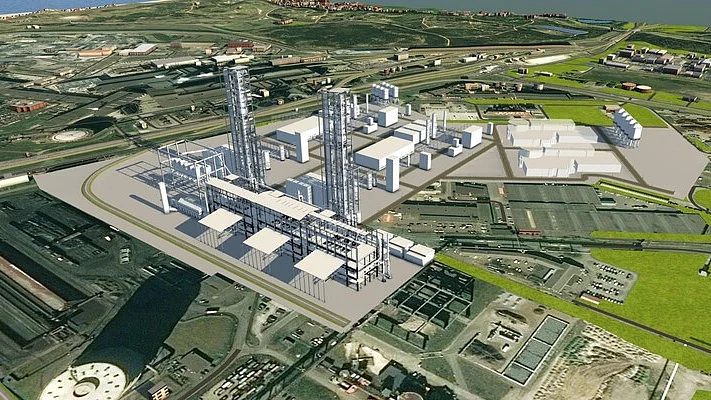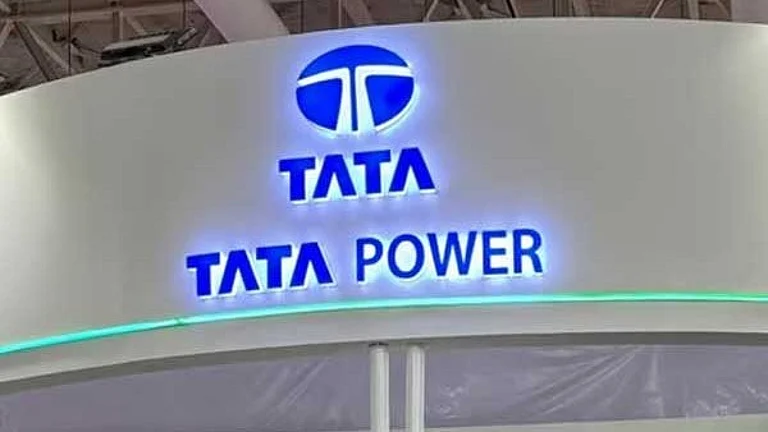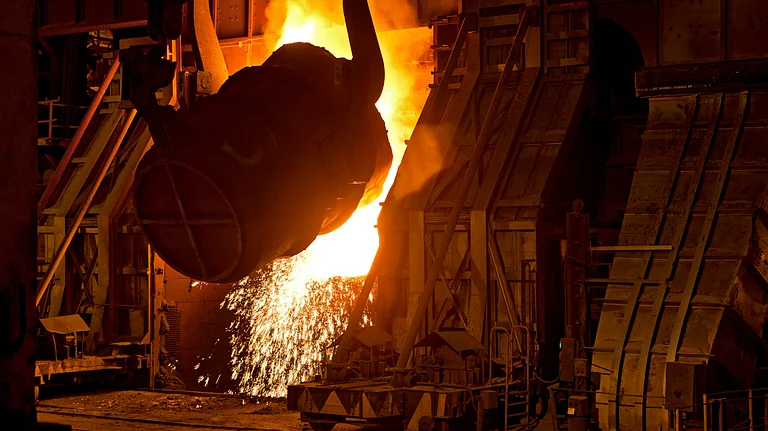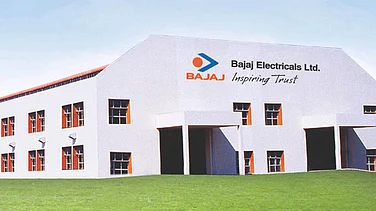
Tata Steel signs a non-binding €2 billion ($2.2B) joint letter of intent with the Dutch government.
It is for the first phase of decarbonisation at its IJmuiden plant.
The project involves shutting down Blast Furnace #7 and Coke and Gas Plant 2, replacing them with a Direct Reduction Plant and an Electric Arc Furnace.
Tata Steel on Monday announced that it has signed a joint letter of intent with the Dutch government for the first phase of decarbonisation at its IJmuiden plant. Under the non-binding agreement, the government would provide up to €2 billion ($2.2 billion) in support. However, the company noted that it has not yet “completed the full engineering of the integrated project and therefore not finalised the total spend.”
The announcement comes five months after the company laid off about 1,600 workers, roughly 20% of its Dutch workforce, to boost profitability amid competition from cheap Chinese steel and US tariffs.
Tata Steel Netherlands’ first phase of the Integrated Health and Decarbonisation Project involves shutting down Blast Furnace #7 and Coke and Gas Plant 2, replacing them with a Direct Reduction Plant and an Electric Arc Furnace. These will initially run on natural gas and increase the use of scrap. The shift is expected to cut annual CO2 emissions by 5.4 million tonnes, with further reductions planned through carbon capture, biomethane, and hydrogen in later phases.
The company said the final capital expenditure and phasing will be determined when the tailor-made agreement is signed and the final investment decision is made. Project execution will be spread over several years. In addition to the €2 billion from the Dutch government, Tata Steel has applied to the EU Innovation Fund for about €0.3 billion. The remaining funding is expected to come from Tata Steel Nederland’s cash generation, project financing debt, and contributions from Tata Steel Limited.
Tata Steel’s European operations, which it acquired through Corus Steel in 2007, returned to profit in Q1 with an EBITDA of $17 million, compared to a loss of $86 million in the previous quarter, helped by stronger performance in both the UK and Netherlands. The Netherlands posted an EBITDA of ₹6.1 billion, a sharp rise from ₹1.2 billion in Q4, despite a $14 million tariff impact.
In the same quarter, the company said it intends to replace one of its two IJmuiden blast furnaces with a DRI and EAF setup by 2030. It also announced a “structural cost takeout” programme across all entities, including Tata Steel Nederland, expected to save ₹1,400 crore through improved sales mix and procurement efficiencies.
The joint letter of intent (JLoI) on Monday outlines the goals of Tata Steel and the Dutch government but is not legally binding. Both sides will work to finalise the agreement in the coming months, with Tata Steel’s board to decide on the final investment. The JLoI includes termination clauses. Tata Steel may exit if policies such as higher CO2 levies, rising network tariffs, or stricter slag rules significantly impact its business. The Dutch government requires Tata Steel to address legacy liabilities, especially concerning the Coke and Gas Plants. A detailed project schedule will be part of the final agreement.
“We would like to thank Minister Hermans, her colleagues in the Cabinet, and the team from the Netherlands Government and the province of North Holland, who have engaged constructively and painstakingly with us over the last two years to complete this first step in our journey towards creating a sustainable long-term future for Tata Steel Nederland,” said T.V. Narendran, CEO & Managing Director, Tata Steel, and Chairman of the Supervisory Board of Tata Steel Nederland.
He added that “there are still a lot of issues to resolve and work to be done. This includes internal work, such as completing the engineering preparedness for this complex transition and addressing statutory and regulatory aspects related to the coke and gas plants.”
Tata Steel first raised the need for government support for its green steel transition about four years ago and has been in continuous talks with the Netherlands since then. This latest commitment follows the UK government’s £500 million grant in 2024 for Tata Steel’s £1.25 billion green steel project at Port Talbot.

































